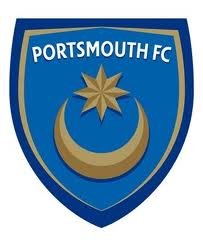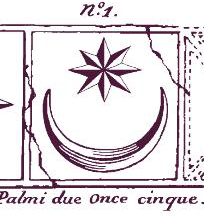23rd May, 2010
If I have tribal loyalties, they are to Portsmouth Football Club and the Labour Party. It is a sad fact that nowadays, these loyalties coalesce around losers.
Hey ho. I’ve already said it feels more right that Pompey are down and out; the same may well be true of Labour. I should put up and shut up and enjoy the liberties of my teams’ demotions.
Naturally, I am intensely interested in who the next bosses of Pompey and Labour might be. Pompey, excitingly, might be managed by the legend that is David James. He’s put himself forward in the last couple of days, in the light of Avram Grant’s departure. Less thrillingly, perhaps, Diane Abbott has put her hat into the ring for Labour, while Neil Kinnock has endorsed Ed Miliband. Interesting times.
But not everyone shares my fascination. I’m aware that, in other business, there’s a coalition love-in going on, and all eyes are upon it.
The love-in is so sweet that I am nervous of gainsaying it. But I have this feeling that There’s Something Going On with the new government. I can’t quite put my finger on it. But here are some of the things that are bothering me.
1) The fact that I feel nervous gainsaying the coalition
These are times of New Politics, of open-mindedness and compromise. It’s just not cricket to be cynical about it. It’s historic. There’s some reform in there too. Who doesn’t want reform? Who doesn’t want a good old clean up with a nice new broom?
It would be just mean-spirited of anyone to knock these noble efforts.
Hmm. If Alastair Campbell were on their team, I’d be feeling well and truly ‘spun’ into a corner for the mean and nasty. The only dignified way out of this corner, it seems, is to smile, raise a glass and ‘wish the coalition well’. Launch her like a good ship; say a prayer for all who sail in her; cross fingers against rough seas ahead.
But hang on a minute. If this were a Conservative government, I wouldn’t be ‘wishing it well’. I’d be wishing it gone. I can’t really imagine a majority LibDem outfit, but insofar as I can, I’d want that gone too.
I wouldn’t want either party. So why is a fusion of the two any different? The truth is it isn’t.
What we are supposed to be applauding, then, must be their open-heartedness in having sat down and hammered out a deal. Which leads me to my next worry.
2.a) Our Country’s Good
This is the idea that the coalition came together for the good of the country. The LibDems and Tories keep telling us they got into bed with each other “in the national interest”.
I’m not going to criticise a politician for wanting power. Any politician will say he’s doing something in the national interest even if he’s doing it in his own self-interest. Because he believes his hand on the tiller of power is not just in his interest, but ours. Except in extremis, we can’t expect politicians to differentiate between self-interest and national interest.
But it does amaze me that the phrase ‘in the national interest’ has been repeated so much without inducing laughter. Nobody thinks it’s funny. Why? Maybe it’s a nagging doubt about…
2.b) The Electoral Mandate
This is the notion that goes “the people wanted this”. This argument says Labour lost, but the Tories didn’t win. Therefore the electorate is sending a message to the political class: collaborate, bury your differences, sort yerselves out. The electorate is effectively banging the politicians’ heads together.
Add to this the power vacuum – the weakness of the Tories on their own, without a majority – and it is, surely, only right, proper and decent of the coalition partners to bury any Old Politics hatchets and come together, for the good of the nation.
What bothers me about this, is the electorate didn’t vote for a coalition. As my mate Andy says, “I didn’t see Hung Parliament anywhere on the ballot slip. Must have missed that one.”
Voters vote for an MP. One they like personally. Or one whose party politics they prefer. Or they vote tactically. Mostly, they want their party to win. What they don’tvote for is no party to win. What the voters in the 258 constituencies which returned Labour MPs did notvote for is a Tory/LibDem coalition.
The truth is that the coalition is about a bunch of guys teaming up to win on the numbers game. And there’s nothing much wrong with that. Simple majorities, in the end, are the best way to crack on. But there’s nothing God-given, or holier-than-thou, or New Politics, or historic about it.
3) The New Gospel

The Historic Agreement (click to read)
Speaking of God, is it just me, or is The Coalition Agreement reaching biblical status?
“Even if you’ve read 100 party manifestos, you’ve never read a document like this one,” Nick Clegg told an audience of civil servants at the Treasury on Thursday.
Not only is it the best thing since sliced bread, it is better than two other loaves of bread joined together. “Not one party’s ideas, not even just two parties’ ideas, but a joint programme for government based on shared ambitions and shared goals. Compromises have, of course, been made on both sides, but those compromises have strengthened, not weakened, the final result.”
Strewth. This is a nine-day cherry-picking job. Pretty well done, actually, with some welcome excisions from the Tory manifesto and the thornier issues kicked into the long-grass of commission land.
But insofar as it is a brave new document, it is (by definition) one that we did not vote for. It’s a new programme for government which has not been endorsed by victory at an election.
Which is why I’m so anxious about
4) The “strong and stable” argument
By which I mean the repeated calls for “strong and stable government”, the rigging of the constitution with the 55% rule and the disingenuous call for a fixed-term parliament. I’ve covered some of this elsewhere, so I won’t repeat myself. But here we have a newly-concocted plan for government presented as a sacred text by a coalition which thinks its marriage has been blessed in heaven.
With all this goodwill from above, it’s surprising that they also feel the need to rig earthly rules. It’s pretty revolting. There are several ways in which this rankles. Not least in their own world-view: on the coalition partners’ own narrative, the people gave no one a clear majority. Or, to put it another way, the people did not want a “strong and stable government”.
Best plan, then, is to try to arrange it so that the people don’t get to vote again for a long, long time. Wow. Is five years long enough, guys?
Oh dear, I’m so firmly in cynics’ corner, I’ll never get out. I haven’t even started on
5) Clegg’s Political Reform, the biggest and the best since 1832….
…. from a man who commands 57 seats in parliament.
No denying it. I’m a sore, sour loser. I’d better turn my attention back to Pompey and Labour. Like our friends in government, I should turn adversity into creative opportunity. Here goes.
There’s a song we sang in Fratton Park when we were promoted to the Premiership in 2003. With just a couple of tweaks, it becomes a song for the Losers’ Coalition. It is, I know you will agree, historic and noble and just what the people wanted. I have created it in the national interest. Knock it at your peril.
(to the tune of Knees Up Mother Brown)
Now we’ve been demoted
This is our new song
We are Portsmouth
We are Labour
Back where we belong.
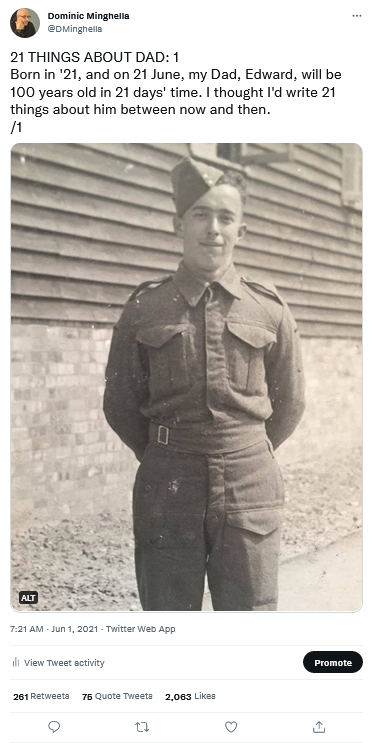 [pdf-embedder url=”https://www.minghella.com/wp-content/uploads/2022/03/21-Things-About-Dad-1.pdf” title=”21 Things About Dad”]
[pdf-embedder url=”https://www.minghella.com/wp-content/uploads/2022/03/21-Things-About-Dad-1.pdf” title=”21 Things About Dad”]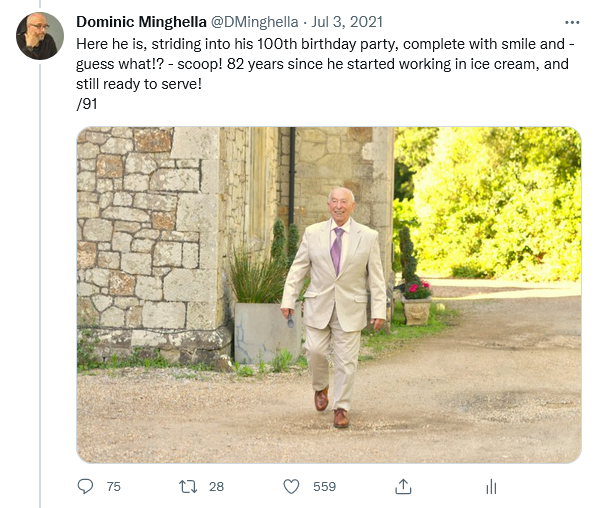

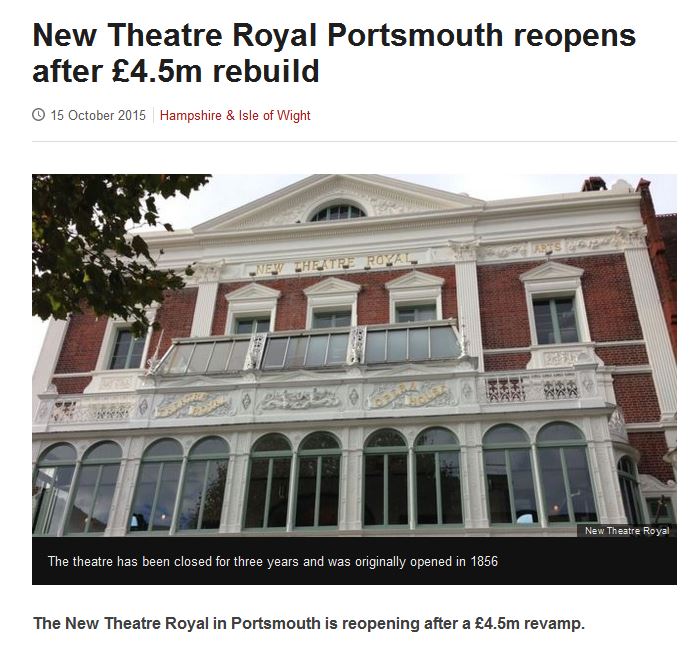

 We used to take “the football boat” from Ryde, and when Anthony’s fortunes improved, he would buy us ‘posh’ tickets in the middle of the South Stand. (Anybody who has been to Fortress Fratton will know that the word ‘posh’ can only be applied in the loosest sense, but that is very much part of its charm.) When Anthony died, my sister and I toyed with the idea of keeping his season ticket going, leaving his seat symbolically empty. Pompey is part of our story: our history, and, hopefully, our future. We’ll see.
We used to take “the football boat” from Ryde, and when Anthony’s fortunes improved, he would buy us ‘posh’ tickets in the middle of the South Stand. (Anybody who has been to Fortress Fratton will know that the word ‘posh’ can only be applied in the loosest sense, but that is very much part of its charm.) When Anthony died, my sister and I toyed with the idea of keeping his season ticket going, leaving his seat symbolically empty. Pompey is part of our story: our history, and, hopefully, our future. We’ll see.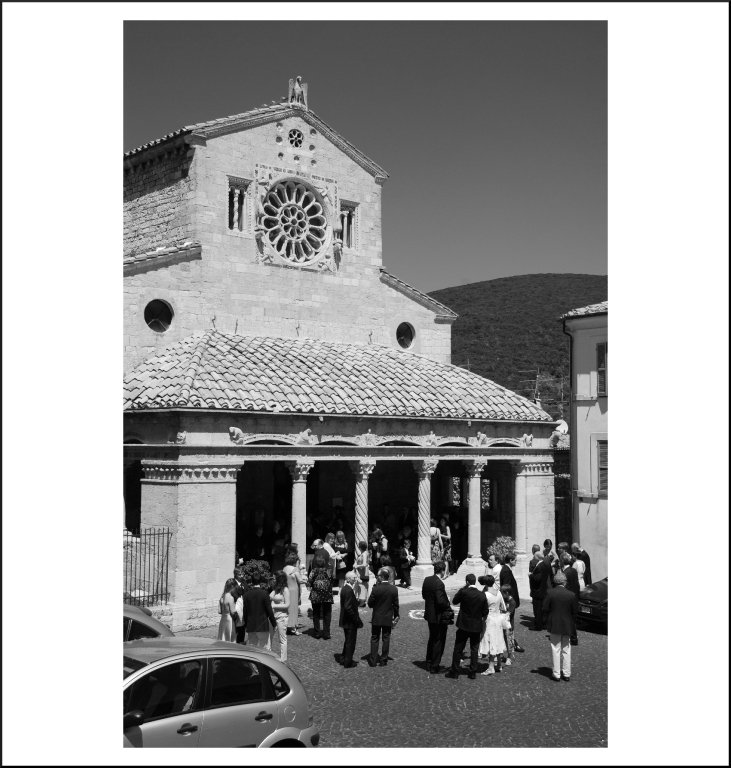 In recent times, I have taken to spending a part of my year in Umbria, Italy, just north of Rome. There is no family connection there, just a love of the place. I have found an increasing sense of belonging in a wonderful hilltop town on our doorstep called Lugnano in Teverina. When I recently went to report a burglary to the police there, the carabiniere made me describe everything to him in painstaking detail, enjoying my comic struggle with Italian, before revealing that he knew everything already: word gets round in a town that small. You either love that kind of thing or you hate it, and I love it. It’s a totally brilliant community.
In recent times, I have taken to spending a part of my year in Umbria, Italy, just north of Rome. There is no family connection there, just a love of the place. I have found an increasing sense of belonging in a wonderful hilltop town on our doorstep called Lugnano in Teverina. When I recently went to report a burglary to the police there, the carabiniere made me describe everything to him in painstaking detail, enjoying my comic struggle with Italian, before revealing that he knew everything already: word gets round in a town that small. You either love that kind of thing or you hate it, and I love it. It’s a totally brilliant community. Finally, I adore red wine. I know next to nothing about white. But a wine dealer friend, the excellent Sebastian Peake, forced a case of a particular white on me a few years back. It’s a vermentino and it is a revelation, a small shipment from heaven. I associate it with a physical release of tension – that tightness in the pit of the stomach that tough days can induce dissolves with the first glug of this particular cool, minerally (but smooth) wine. Actually ‘dissolves’ isn’t the word. The tension snaps away before the wine even hits the back of the throat, in what can only be a pavlovian response to its aroma.
Finally, I adore red wine. I know next to nothing about white. But a wine dealer friend, the excellent Sebastian Peake, forced a case of a particular white on me a few years back. It’s a vermentino and it is a revelation, a small shipment from heaven. I associate it with a physical release of tension – that tightness in the pit of the stomach that tough days can induce dissolves with the first glug of this particular cool, minerally (but smooth) wine. Actually ‘dissolves’ isn’t the word. The tension snaps away before the wine even hits the back of the throat, in what can only be a pavlovian response to its aroma.